Note: This post may contain affiliate links which means if you click on a link and purchase an item, we will receive an affiliate commission at no extra cost to you.
This post is brought to you by few things Ande always travels with: yerba mate and Tarot cards.
This is the latest interview in a series featuring digital nomads talking about their lives and lessons (click here if you want to be interviewed). The goal is to help demystify the process of making money online, wandering the world, and living an unconventional life!
Ande started freelance writing when she was in college in India. After a series of journalism jobs in the US, she realized life abroad suited her better. Check out her website Wander Argentina for tons of Argentina content!
Thank you for being here with Freedom Is Everything, Ande!
Key takeaways from Ande’s interview:
“When you trade time for money directly, the only way to earn more, besides incremental raises, is to work more hours. With a website or blog, it’s possible to make one little tweak sometimes and increase your income overnight.”
“My idea, from almost the start of my career, was to gain more flexibility with my work hours and control the number of hours I work per week. I think some Americans in a lot of professions don’t realize how hard they have it far as their work lives go compared to other countries.”
“The novelty of new places is kind of a drug. If you are curious, it’s hard to get depressed exploring or traveling. Even if you go to a place you don’t enjoy, you can just move on.”
“If someone is thinking of changing their lifestyle to become a digital nomad, the first step is to simplify their life and par down their belongings. Having a lot of ‘stuff’ and spending most of one’s paycheck on more stuff will just prove to be a barrier to getting there.”
Table of Contents
Introduce yourself! 🙂 Who are you? What do you do for work? And what is your nomadic story?
I’m Ande Wanderer. I grew up in Hotlanta. I’m a journalist by trade and now a web publisher. My main site is Wander Argentina, a website about culture and travel in Argentina.
For university studies, I went to a school called Friends World College that had a multicultural requirement and eight centers around the globe. My sophomore year, I went to the city then-known as Bangalore (India), which was exactly halfway around the world – it didn’t really matter if I traveled east or west to get there.
That same year my professor suggested I start freelance writing. I started learning about it and sending off pitches. At the time, the web was not really a thing yet, especially in India. You had to send a self-addressed stamped envelope and use post restante to communicate with editors.
So I started off as an ‘analogue nomad’ — in fact, I schlepped around a ten-pound metal Olivetti typewriter. I traveled places without steady electricity, so it had to be manual.
After traveling a lot during college, while continuing to freelance, I graduated, and I settled first in New York City and later in Denver. I worked as a reporter, sometimes supplementing with other jobs from barista to bartending to stagehand work when needed.
In the early 2000’s I had a vague premonition of the way things were heading. The rent on my one-bedroom apartment went up from $500 to $600, then $700 (and today is probably $1800).
The North Denver neighborhood I lived in was gentrifying. Even as a gainfully employed college-educated citizen, I was not immune. Newspapers I worked for were folding as well.
After visiting for six weeks on an exploratory trip in 2003, I decided to take a leap, sell off the majority of my belongings and move to Argentina. So for 16 years, Buenos Aires has been my home base.
In 2009 I started Wander Argentina.
The last five years, I have traveled for three months a year overseas with my laptop, doing enough to keep my business coasting while traveling.
What inspired you to start nomading? And how has nomading changed your perspective on life?
I explored around the city or adventured through the woods for entire days as a kid. The novelty of new places is kind of a drug. If you are curious, it’s hard to get depressed exploring or traveling. Even if you go to a place you don’t enjoy, you can just move on.
I’m really interested in people and culture, so I always had the desire to travel from the time I looked at National Geographic as a kid.
It is logistically much easier to travel now than when I was younger. In my early travel years, I made so many interesting friends on the road but lost touch with them because we didn’t have the benefits of email and Facebook.
Today, it’s easy to make friends and keep in touch with them, book things online, find places using Google maps and of course, take your job on the road.
Compared to my ‘analog nomad’ days, taking a lightweight laptop and working on the road is a dream.
When you get down to it, people are essentially the same around the world. Travel has made me realize that the lottery of which country you are born in has a huge impact on your life. But thanks to the digital revolution, that is becoming less true — there is a lot of meritocracy in online employment.
Please tell us the detailed story of how you started your freelancing business.
After having a couple of normie jobs out of college, I decided freelance was more my style for the flexible work hours. For one thing, I had lingering health issues caused by pernicious parasites picked up on my travels, which required some flexibility to manage.
Secondly, I don’t know if this sounds crazy, but when I had a normal office job and had to get up using an alarm clock, I would spend the whole night tossing and turning in bed calculating how many hours I had to sleep before the alarm went off, negotiating with myself about the latest hour I could sleep, and getting worried about how tired I was going to be the next day.
My natural disposition is not that anxious, but for some reason, the alarm clock was my greatest adversary. I tried it all – melatonin, milk and honey, meditation, but for some reason, just knowing I would be awoken by an alarm clock made my bed feel like the least restful place on earth.
Eventually, I decided it would be easier to design my work life around this personal defect than it would be to overcome my neurosis about waking up to that atrocious beeping.
So that’s why I started freelancing. Weirdly, now without an alarm clock, I have no problem getting to sleep and waking up early.
After moving to Argentina, I started Wander Argentina because I was getting a lot of questions about travel and life in Argentina and moving overseas, so I saw a need for it.
Building it was mainly a time investment, and the beauty of a website is that it takes barely any overhead to start one.
Also, publications I had worked for were folding right and left, so being a web publisher seemed like a better long-term prospect than continuing to focus on freelance writing and photography.
I like the idea that my income isn’t limited by publishers and editors saying the common refrain, ‘it’s not in the budget.’
When you trade time for money directly, the only way to earn more, besides incremental raises, is to work more hours. With a website or blog, it’s possible to make one little tweak sometimes and increase your income overnight.
What is unique about the way you travel, and what advice do you have for someone that wants to travel with a similar style?
I never considered myself an intentional minimalist, but people tend to be amazed at how little I pack for my annual three-month journey.
I’m definitely not a flashpacker, nor a backpacker anymore. I carry a duffle bag that converts into a backpack if needed, and then I have one over-the-shoulder bag that my laptop fits into. If someone wants to travel lightweight, they can’t be too into fashion and beauty accessories.
I always figure if I need something on the road, I can buy it. I also often also pack clothes I’m not that attached to and purge them along the way and pick up new (or more likely new-used) stuff as I travel. (Clothes are expensive in Argentina, so this is more strategic than it seems).
When I was a teen and a hardcore traveler, I squatted sometimes – in Amsterdam (after being robbed — I ended up working in a hostel four months), Philadelphia, and San Francisco, where I also even slept among an encampment in Golden Gate Park.
Now I like luxury hostels that are really nice but affordable and have individual sleeping pods with outlets and lights. If I’m in a higher-cost country and don’t want to spring for a hotel room or Airbnb, the upscale hostels are perfect for comfort and the facility to meet other travelers.
Many have guitars and other instruments, and books, and hair dryers, so that’s another bonus over more conventional accommodations.
Airplanes are my least favorite way to travel, but sometimes they are a necessity.
I love trains — they are the best form of travel in places such as Europe, India, and Thailand.
My dad is an octogenarian who travels three months of the year on a sailboat off the west coast of Canada, so I love to join him when I can.
What are the 2-3 favorite places where you’ve lived/traveled to and why?
The Indian subcontinent, specifically India and Nepal, hold a special place for me since I studied there my sophomore year in college. The culture and arts are so diverse and intense. I love Hindustani music and the incredible regional arts such as Kummattikali, the mask dance of Kerala.
Even though it gets a reputation as a dangerous country, I traversed it by train and bus and never really felt as if my life were in danger. Unlike many other countries, you can walk through the slums in India or Nepal, and you will be fine – in fact, a bunch of people will want to make your acquaintance!
My second to last overseas trip, I visited Portugal and loved it.
Holland and Thailand are old favorites, largely because of the people.
Ireland, one of the first countries I traveled to, is up there too. I like the way people spontaneously say, ‘Welcome Home!’ to me there, especially since I was adopted and only found out about my family’s deep Irish lineage as an adult.
What advice would you give to someone who’s thinking about nomading?
If someone is thinking of changing their lifestyle to become a digital nomad, the first step is to simplify their life and par down their belongings.
Having a lot of ‘stuff’ and spending most of one’s paycheck on more stuff will just prove to be a barrier to getting there. It’s important to start saving as much as possible before you travel in case anything comes up. Before I relocated to Argentina, I sold off a lot of things, including two cars, so that helped me to have a good cushion when I first arrived.
My rule for going to a new country is that I have to learn to say: ‘Hello,’ ‘thank you,’ ‘okay,’ ‘goodbye,’ ‘bathroom,’ ‘excuse me,’ ‘I’m sorry,’ ‘that’s cool’ and the numbers at a minimum.
Even if the people speak English, it’s a good practice. Anyway, the idea is to learn and hopefully not be like a neocolonist demanding that people accommodate you without putting in any effort yourself.
I’m naturally a little shy when I first meet people. I’ve just trained myself to approach people in the hostel or pub and introduce myself. If they are cool, they’ll usually be receptive and, if not, no big deal.
In 2016 I joined the Buenos Aires branch of Toastmasters International to work on my public speaking skills and meet new people.
The cool thing about Toastmasters is if you are a member, you can attend meetings around the world, so it’s great for travelers. I’ve been to meetings in Seattle, Vancouver, Minneapolis. I’ve tried to go in Europe, but due to their long summer vacations, they are usually suspended when I’m there. I randomly meet other Toastmasters on the road too.
I’ve found sometimes it’s easier to connect with other Gen X travelers and sometimes even elderly wanderers. They have less of a tendency to be glued to their devices, so it’s easier to strike up a conversation. Older travelers are inspiring to me, too, so they are good activity or travel buddies.
I would encourage people to just get used to introducing yourself to people and think about joining toastmasters or other groups that interest you on sites such as Meetup.com.
Also, people who work in hostels are good sources of information about cool things going on.
Since launching, what has been most effective to acquire/retain clients?
The vast majority of our clients come through searching Google for the information and services we offer. Sometimes we get people who come through word of mouth and our Facebook page too.
I have to limit the number of clients I take on because of Argentina’s peculiarities — it takes a lot of ‘preventative legwork’ to make sure things go smoothly here. One of our most popular services is arranging for people to go to soccer games. They aren’t cheap. I deal with some pretty rough characters to arrange it because popular teams here only allow ‘club members’ into games, so they aren’t normally open to tourists.
For freelance work, sometimes people come to me. Usually, if I throw out a few well-aimed pitches, I can land a freelance assignment.
For someone interested in becoming a freelancer in your field, what’s the best advice you would give? And what books, podcasts, thought leaders, or other learning resources do you recommend?
For someone interested in entering the journalism field without the benefit of nepotism (which is more common in journalism than other fields), I’d say get your clips together, send lots of pitches, don’t waste editors’ time, and follow through. Get a copy of Writer’s Market or Photographer’s Market and memorize the AP Stylebook.
There is a lot of writing work out there of all types. Beginners can start with online work platforms such as Fiver to get clips, but I prefer to pitch to publications directly.
To start a website or blog, you have to be willing to hunker down and put some serious time into it initially, unless you have the capital to hire a team.
The majority of people who start a blog don’t earn any money and abandon it after a while. I think that is mostly because they don’t realize the amount of sweat equity involved, or they simply don’t have the skills or desire to make it a business.
Whatever field one chooses, you have to make an honest assessment of your skills and determine if there is a market for them. The place where your interests, abilities, and the needs of ‘the market’ overlap is the sweet spot for starting your own business.
I like Richard Branson’s simple method for figuring out which direction one should take their career. For good business advice without a smarmy, hyperbolic tone, Seth Godin is great.
“Instead of wondering when your next vacation is, maybe you should set up a life you don’t need to escape from.” -Seth Godin.
What digital tools do you use for your work/business?
Here again, I am rather a minimalist compared to some bloggers. I have an epic love-hate and completely unrequited relationship with Google and their range of services from Google Analytics, Docs, Drive, Domains, Slides, and their publishers dashboard to file Digital Millennium Copyright Act notices.
It is so strange to have another company be so integral to your business but not actually have a human in the company you can speak to — it’s like dealing with the Wizard of Oz.
I also use WordPress for my blogs, Photoshop, and Canva for my photo and design.
What scale is your business at today, and what are your future goals?
Before the pandemic, Wander Argentina was getting about 25-45k visitors a month. It’s not a ton of traffic since it’s kind of a specific niche, but it is among the top three English-language websites about travel in Argentina. At various points, it has gotten a lot more and a lot less traffic. Only the Google Gods know exactly why.
Most of our income comes through providing travel services and helping people design their trips in the country.
I put Mediavine ads on the website right before the pandemic, which has helped to keep it afloat. Argentina is very inexpensive to live in right now for those with foreign currency because the government reinstated the parallel currency market, known as the ‘Blue Dollar.’
When travel returns, I’d like to move into having a workmate take a larger role in Wander Argentina, so I work on other projects and relocate again.
I’ve thought about making a personal Youtube channel, but just like with building a website, I’m under no illusion that it’s easy or that I would make money immediately, but it’s one of a few options I am considering. With the slow vaccine rollout here, it will still be a while before travel returns as it was before.
Tell us about your content creation journey and share some of your favorite content that people should check out!
Search Engine Optimization kind of dampers my writing mojo, but it’s true that people are mostly seeking information when they do a Google search — not great writing. That said, one of my recent articles on Wander Argentina is about my favorite, healthiest vice, yerba mate.
Going through and putting up old clips for my portfolio, I recently republished an article I did about how the Hare Krishnas used hardcore music to attract young devotees, and one of several features I did on the party drug GHB, which few know is today is one of the pharmaceutical market’s most sought after and expensive medications.
What do you travel with that you couldn’t imagine traveling without?
If I am doing three months of travel, my Macbook so I can keep my blog coasting along. My two privileged passports (American and Canadian) are helpful too.
I also travel with my mate and yerba to drink yerba mate. Since yerba mate kills your appetite, and you only need hot water to prepare it, it is great for travel. Also, offering people mate is a good way to meet people — a lot of people are curious about the strange bong-shaped receptacle I sip from.
I even had a great conversation with a Mexican immigration official who wanted to make sure the mate wasn’t some type of contraband.
I also travel with Tarot cards and do readings in exchange for beer. Beer is a completely unnecessary travel expenditure, but I like it, and people love Tarot Card readings. People think I’m good at it. I often end up with a line of people and end up giving away pints. People are funny — sometimes I think I should make Tarot Card readings my main gig because it’s so effortless.
If you’re passionate about FIRE (Financial Independence Early Retirement), please share how this has impacted your life, what your journey has been like, and what other people should know about FIRE!
I think it’s a great movement and the focus on keeping it simple and saving resonates with me. My style is a little different because I enjoy working and plan to do it my whole life.
My idea, from almost the start of my career, was to gain more flexibility with my work hours and control the number of hours I work per week. I think some Americans in a lot of professions don’t realize how hard they have it far as their work lives go compared to other countries.
In Europe and even here in Argentina, people get six to eight weeks vacation and still do things such as take leisurely two-hour lunches during the week (with a carafe of wine even!) and leave work to go to school recitals. There is even federally mandated paternity leave.
I think FIRE is great for Americans who get high-paying, highly skilled jobs right out of school. The idea of laying the groundwork to enable oneself to bust out of the ‘golden handcuffs’ is very important.
Since I chose journalism and always gravitated toward working in smaller, alternative, and sometimes family-owned publications, I never had the corporate golden handcuffs. But I discovered that for me to maintain a job and not get burned out, every day, I have to be able to:
1.) exercise (even if it’s just a five-kilometer walk)
2.) get an adequate amount of sleep
3.) cook and eat one nice, proper meal
4.) have some social or leisure time to be with friends or pursue hobbies.
I don’t know if that seems really highfalutin, but that was almost impossible for me to accomplish in the United States, at least working in media. I’ve looked at some journalism job ads recently, and they have expectations such as producing an impossible five articles a day and all the associated social media work on top. Even with that, pay rates have not kept up with inflation, so if you’re single, you either have to commute, have roommates or get a second job.
You work into the evening, and then on the weekend, you do your laundry, get your oil changed and other chores, and without being able to relax and recharge much at all, you have to get back to waking up to the bleeping alarm clock early Monday morning.
Sadly I’ve had a couple of old friends die suddenly in their forties in recent years. I wasn’t present, but I got the sense they were pushing themselves – too much work, responsibilities, stress, medications to deal with the stress and related health problems. Health is central to a good life, and work in this century shouldn’t have to literally kill you.
To avoid that trap, people just have to plan their life accordingly and find their own path to escape the live-to-work matrix.
So the freedom of financial independence is very much in my lane, which is why I go into freelancing, relocated overseas, and started my website — I’m just not interested in retiring completely.
What small change has made a big difference in your life?
I became interested in Ayurvedic medicine and principles while living in India and have implemented some of its preventative practices to improve and maintain my health, including yoga, oil pulling, fasting, and other dietary measures.
Also, since I traded in my coffee cup for yerba mate, I try to preach the gospel to get other people into it. For those who like caffeinated beverages in the morning, it’s a lot healthier than coffee and tea. It’s also a great work fuel that doesn’t make you crash. If more people knew about it, I’m sure they would drink it.
As a woman, what should other people who identify similarly (and who haven’t traveled much) know about traveling/nomading?
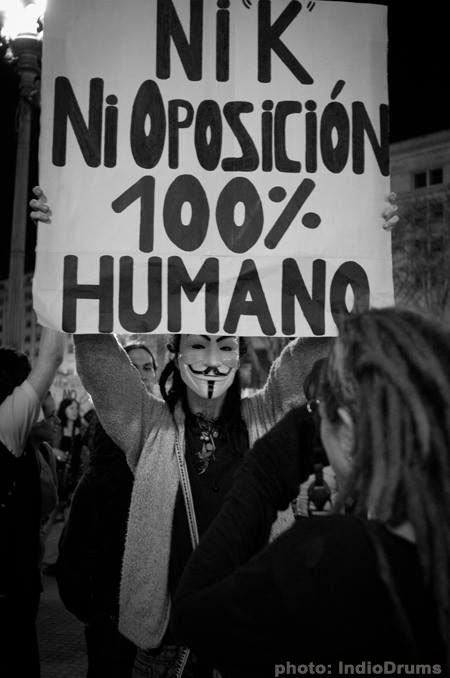
As a woman who has traveled alone to some fairly dangerous places, I would urge women to take some martial arts or self-defense classes. I became interested in martial arts as a teen, and though I didn’t study them for a long time, it really helped me to be more aware of my surroundings, trust my intuition, and most importantly, if something bad happens, not to just freeze, but react as appropriately as possible.
Not only can the training help you in the case of an unfortunate event, but martial arts can help women feel more confident to set off on their own in the first place.
Tell us about a deep passion of yours! What has your journey been like, and what advice/resources would you recommend for someone interested in learning more about this topic?
Traveling, exploring, and learning are pretty central to my life. I also really enjoy languages, even though I’m not particularly good at learning them.
So far, Spanish is the only second language I’ve mastered to a level that is acceptable to me, but I’ve also studied Hindi, Nepali, Kiswahili, French, and Portuguese and find it fascinating to find similar words in different languages and interesting tidbits about the etymology, and through that, history and cultural mashups through the ages.
I think learning other languages — at least one — fluently, is a great way to enrich your life. Not only is it really good for your brain and can even delay the onset of dementia and Alzheimer’s, but you have all the literature, music, and movies in your new language to enjoy.
When I lived in Denver, I would go to a Spanish conversation group in my neighborhood and constantly listened to Spanish language media and TV. For my job as a reporter, I also sometimes did interviews in Spanish, but I would bring a digital recorder along to make sure I didn’t get anything wrong as I was only at an intermediate level back then.
I also practiced with the kids in the neighborhood, who kind of needed adult supervision anyway. So I think language groups, and talking with kids and old people, who often have more time on their hands to hang out, are some of the best ways to learn.
This year I’ve been using Duolingo to study Portuguese and also find watching films in the target language helps a lot. It does take a lot of time to learn a language, but if you really immerse yourself for a consistent amount of time, bit by bit, you can dominate it with a lot of little ‘wins.’
Admittedly there are also embarrassing moments along the way, such as the time I asked a waiter, “¿Señor, la comida tiene preservativos?” (Sir, does the food have condoms?”)
One thing that is indisputable about learning a language is that you have to be willing to sometimes make a fool of yourself to learn. In the beginning, you are going to sound like Tarzán — not matter what — so it can be a humbling experience. If you are too caught up in castigating yourself about how dumb you sound, speaking a second language as an adult will be almost impossible.
I also really enjoy playing music, whether making tracks on my computer, playing drums, or diddling around on the guitar and making up goofy songs.
One of my favorite outdoor activities is snowboarding. Snowboarding is a good analogy for life because when you are learning you fall dozens, if not over a hundred times, a day. At first, it’s a masochistic exercise, but once you can whip down from the top of the mountain to the bottom like a badass, it is so worth it.
I also love swimming in the ocean. Learning to surf is next on my list.
What is your philosophy on being happy and/or finding meaning/purpose in life? And any recommended resources for people navigating this journey?
I don’t really think that life is about happiness per se. It’s better to focus on meaning, at least for me.
Merely seeking out happiness is a recipe for eventual unhappiness in my book because it’s just not realistic, particularly if you travel and see poverty and human suffering up close.
You can seek out moments of happiness and enjoyment as much as possible, surfing the tides of life, but finding meaning goes deeper.
I like the Hindu concept of Dharma, following one’s own inner guidance in the most righteous way possible. I look at life as everyone having their own deeply personal ‘hero’s journey’ — hopefully, at least!
I also like the teachings of Epictetus and Seneca. Now would be a great time for the Stoics to come back into style. In the current Zeitgeist, people seem focused on their limitations and adversaries in life, overlooking that we are living in one of the best times in human history.
With technology, we have so many new possibilities at our fingertips — it’s incredibly democratizing the world over. Meanwhile, we haven’t completely destroyed the planet and had to relocate the human race to Mars yet.
If you only had a few minutes to live, what are the most important life lessons you would share with the world?
One I think some Americans need to hear is ‘all that stuff doesn’t matter.’ Having a certain brand of car or clothes is the most meaningless thing in the world.
Life is about experiences and contributing in whatever way possible, large or small.
Going back to Stoic philosophy, pondering the inevitability of death is a good reminder to live one’s life as responsibly and well as possible every day.
What is one of your favorite travel stories/experiences?
I love when you are traveling and run into someone you know or met earlier on your journey in some other destination — sometimes another continent.
It’s a nice serendipity. It’s even given me the universe’s green light for ‘obviously destined’ romance before.
How can people learn more about you and your work?
My main online business is Wander-Argentina.com, where we have articles about travel and culture in Argentina. I also own a site about volunteering, studying, and working here, Wander-Argentina.org,
This last year I have been working on putting articles of mine on AndeWanderer.com to focus more on freelancing, consulting, and hopefully, eventually, public speaking gigs.


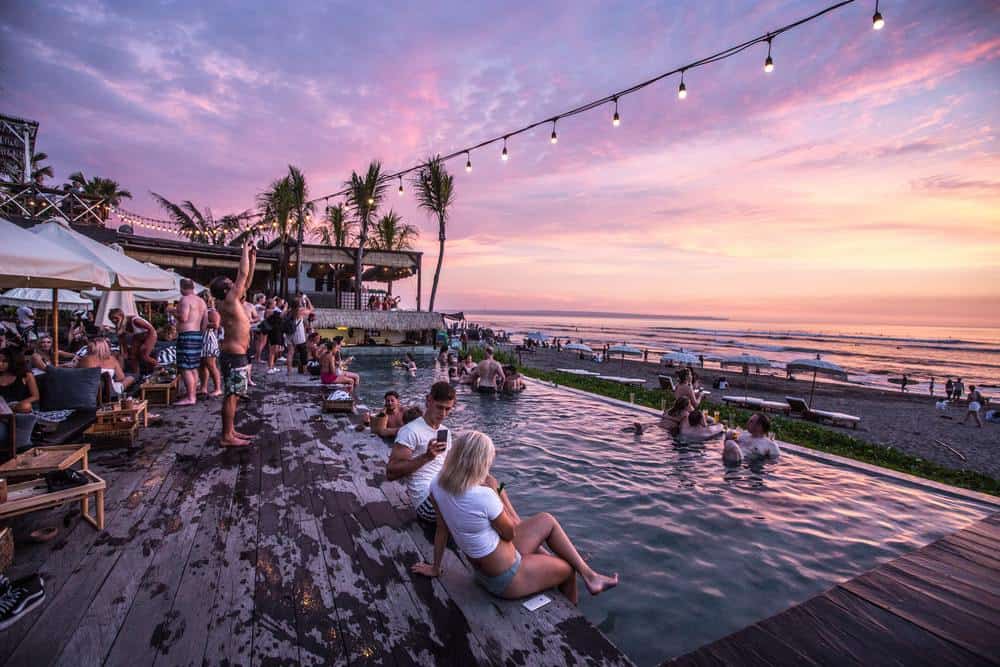
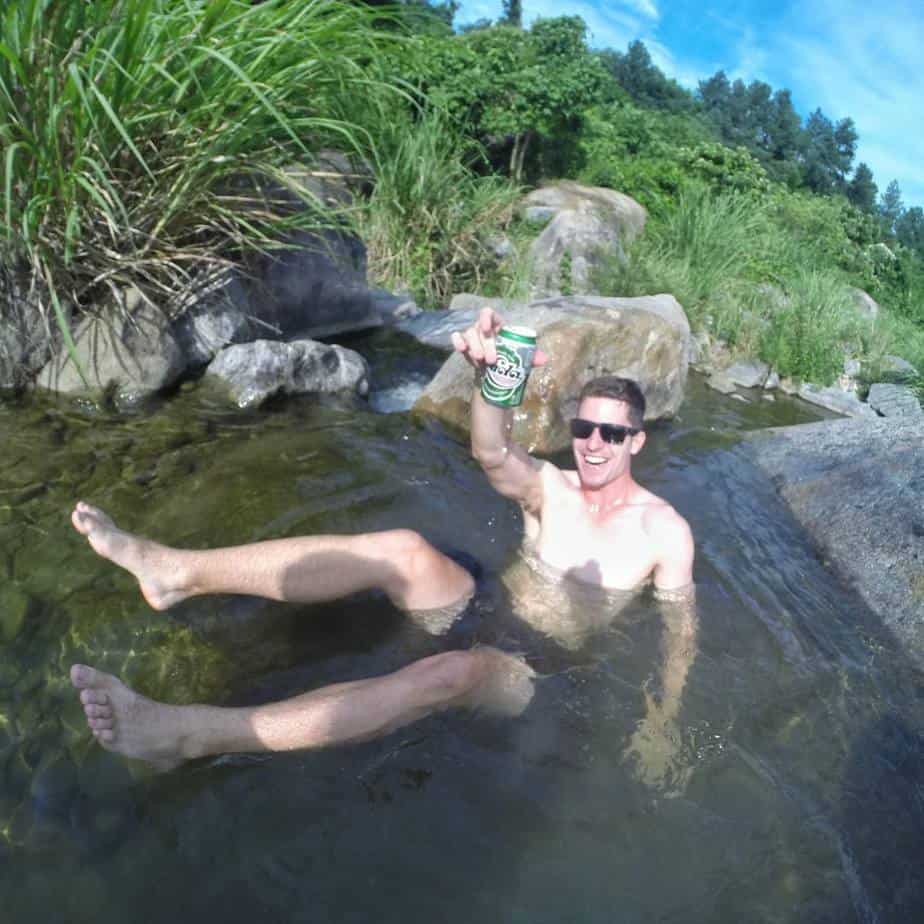
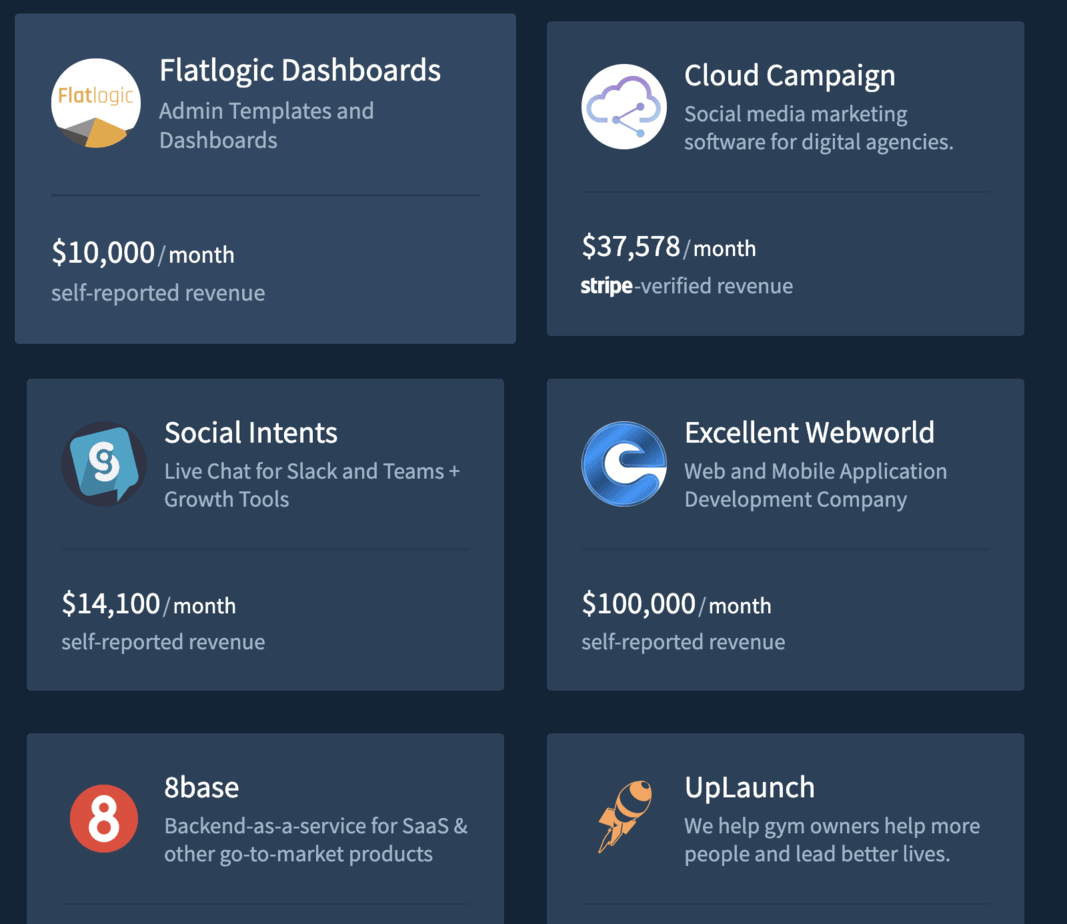
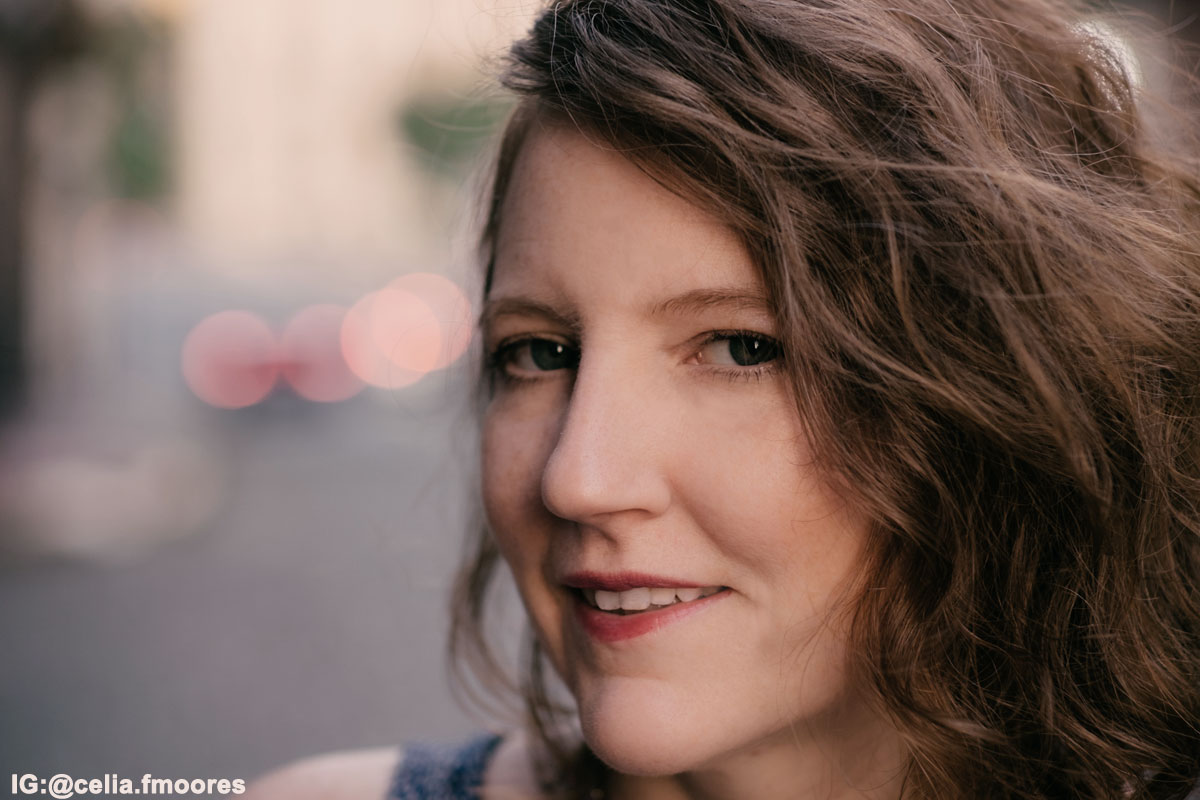
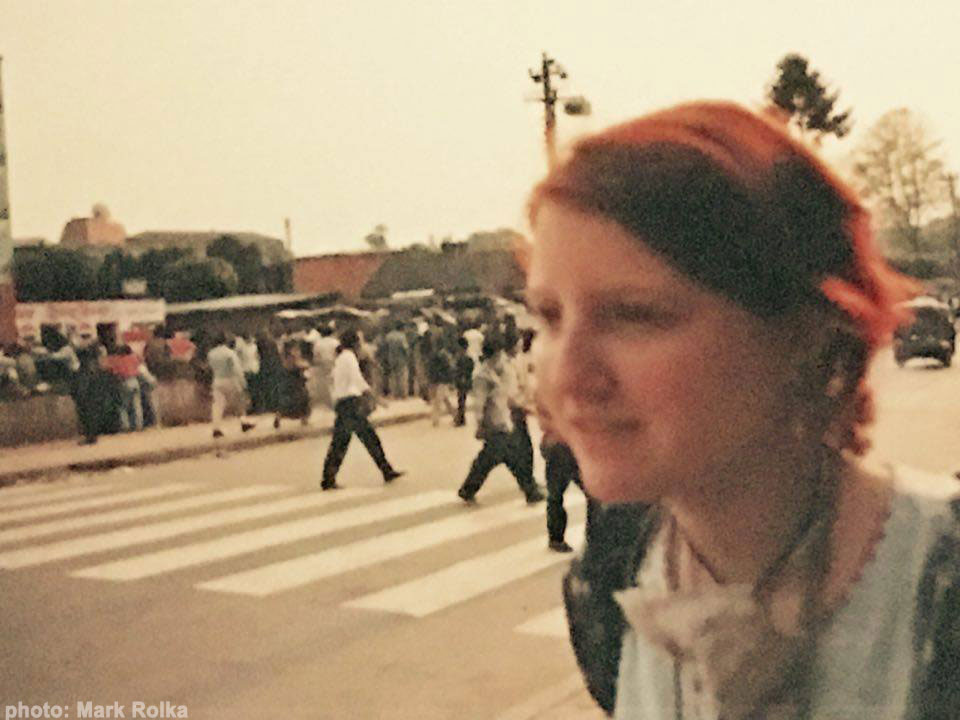
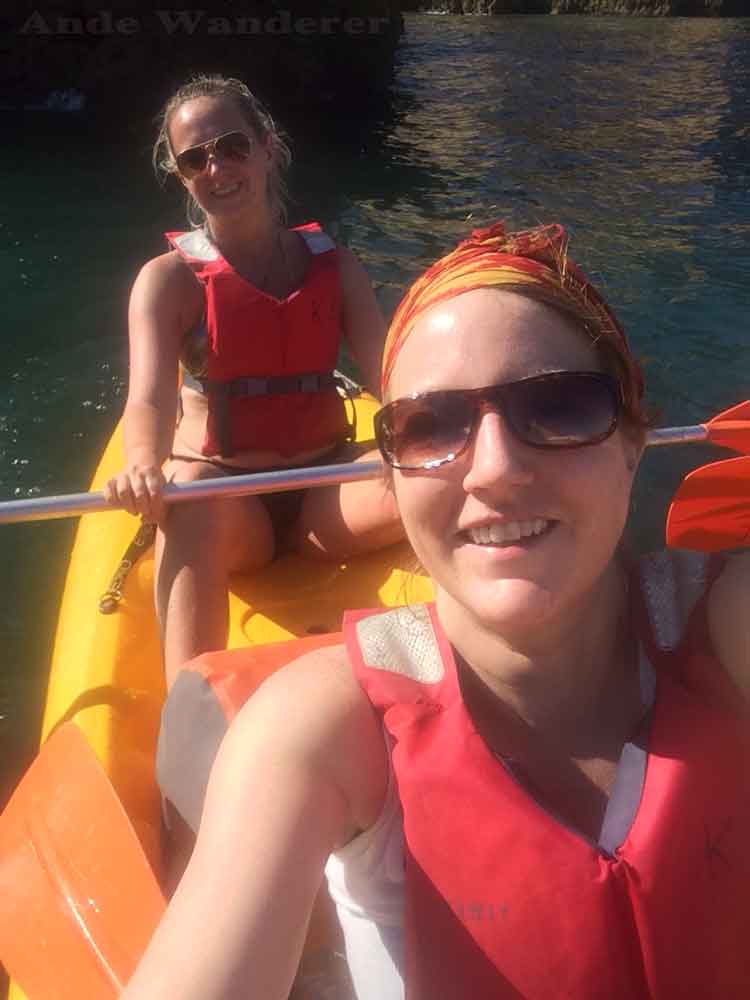
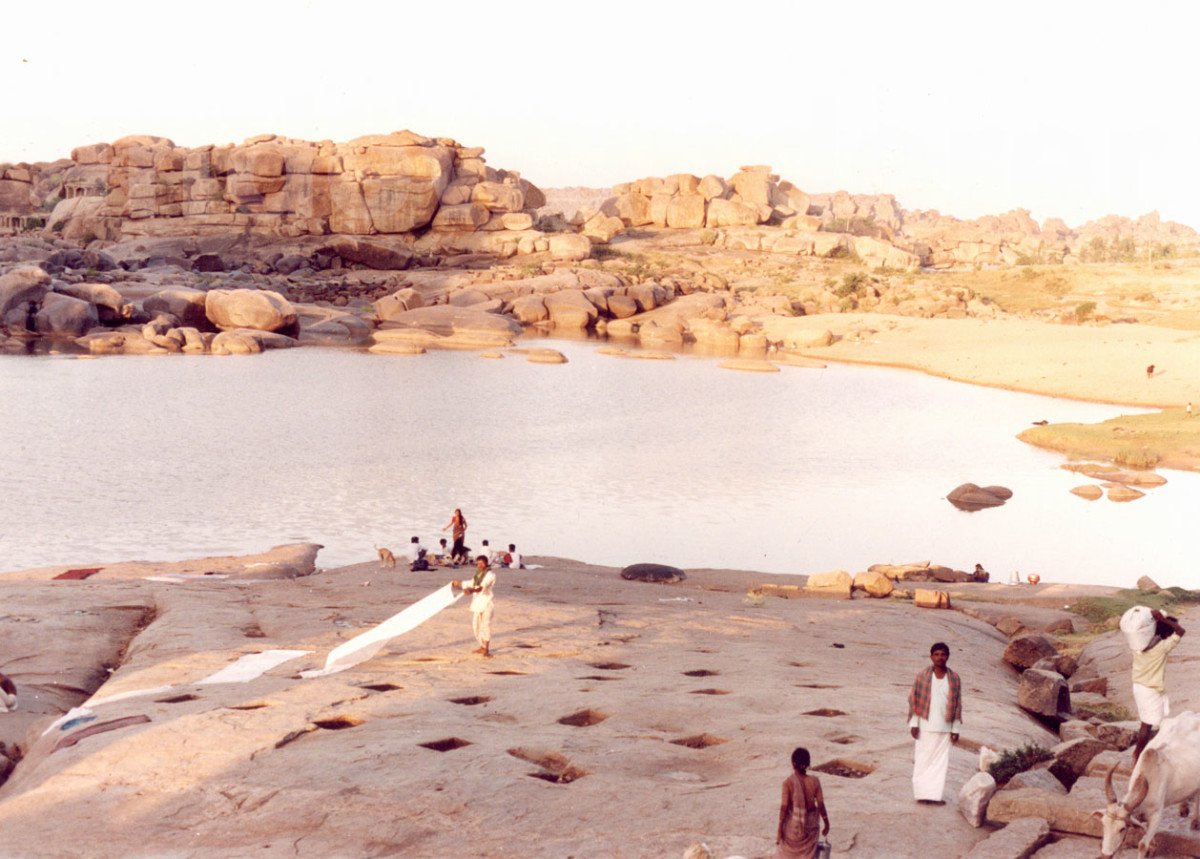
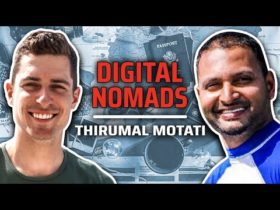
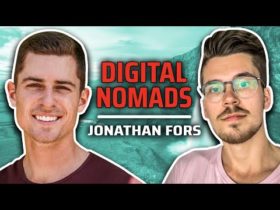

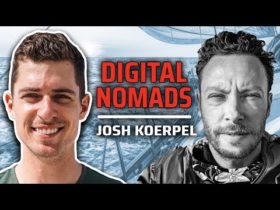
Leave a Reply
View Comments